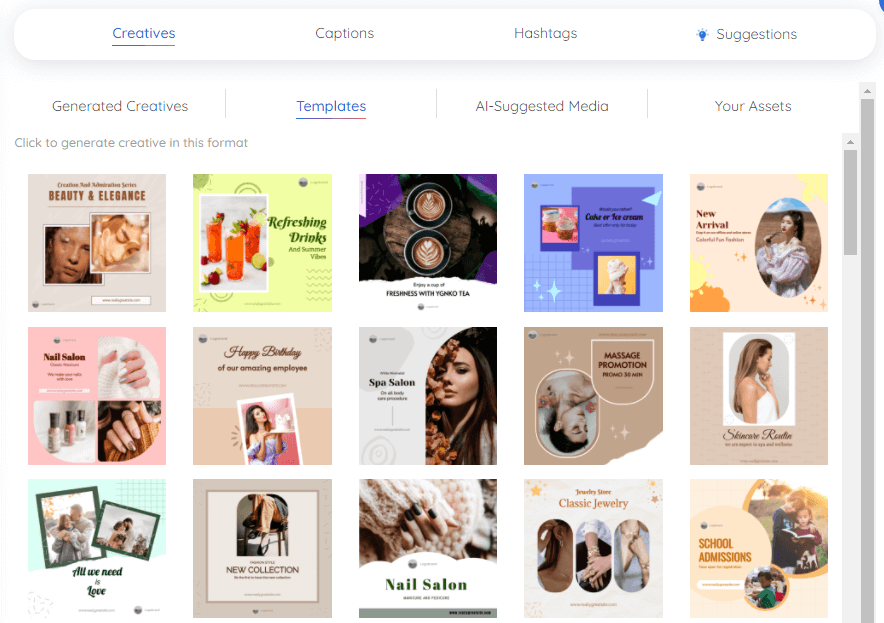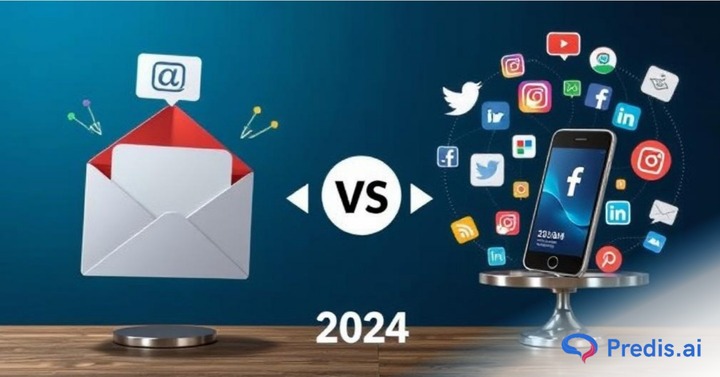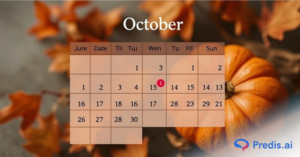Email marketing and social media marketing have proven to be two of the most popular forms of digital marketing for businesses across a variety of niches. When catering to a younger audience, social media often comes across as the medium of choice. However, email marketing has proven its worth year after year, and its conversion rates continue to remain the highest.
However, if you’re devising a fresh marketing strategy for 2024 and are wondering whether you should focus your energies on email marketing over social media marketing, you’ve come to the right place.
This guide takes you through some of the key statistics of both email and social media marketing to give you a clear picture. Additionally, we also dive into the pros and cons of each approach to tell you if email marketing should indeed be the focus of your marketing efforts in 2024.
Key Email Marketing Statistics
In this section, we take a look at some of the most important email marketing statistics for 2024.
- Email attracts roughly 4 billion daily active users.
- 37% of brands are considering increasing their email marketing budget.
- The average open rates for emails range between 15-25%.
- Emails have an average conversion rate of 8%.
- Email marketing returns an average of $36 for every $1 spent.
Key Social Media Marketing Statistics
This section explores some of the key social media marketing statistics to keep in mind when forming your strategy for 2024.
- Social media is being used by around 4.62 billion people globally, representing just over half the world’s population.
- Engagement rates on social media tend to be comparatively lower when compared to email marketing.
- The average conversion rate for social media marketing is around 3%
- Organic reach for businesses, on average, is decreasing with time. For example, the average organic reach for Instagram stood at 13.51%, while that for Facebook was only 8.60%.
What Does the Data Tell Us?
The statistics above offer quite a few insights about the efficacy of email and social media marketing, respectively. For example, what we can say for certain is that email marketing results in an average of 5% higher conversion rates when compared to social media. One important factor contributing to these higher conversions is email deliverability, which ensures that emails actually reach the intended inboxes rather than being lost in spam folders.
Social media engagement rates stand lower than those of email marketing, and while businesses’ organic reach is reducing with time, the benefits of email marketing are resulting in a greater percentage of businesses considering increasing their email marketing budgets for 2024.
Email marketing and social media marketing also vary in terms of their user preferences. The factors that affect these are mentioned below:
- Demographics: Emails are typically preferred by those of an older demographic, with seniors and baby boomers being the most likely to check their emails on a daily basis. On the other hand, millennials and Gen Z tend to prefer social media as their primary means of communication.
- Type of communication: Emails are typically preferred for business or professional communication owing to their formal structure, while social media is often preferred for more casual communication.
- Content formats: Emails are ideal for long-form content as they provide the space to explain complex information and updates. On the flip side, social media is primarily designed for short-form content, making it ideal for shorter snippets of information or updates.
Which Has More Reach: Social Media or Email?
Unlike emails, one of the key benefits of using social media is that it allows for content to go viral. Given that social media platforms are designed to enable seamless information sharing, information can thus be widely disseminated and can even stand the chance of going viral.
With features like cross-platform sharing, direct messages, likes, reposts, and more, social media platforms offer users several quick and easy ways to spread information among a wider audience.
On the other hand, emails are not as conducive to being shared with the potential of going viral as they primarily rely on the user forwarding an email to another individual. This process isn’t as seamless as it is on social media platforms. However, you can ensure higher success of your email campaigns by using an SPF checker or Mailchimp email templates to prevent spam and improve deliverability.
Additionally, investing in thoughtful email design can significantly improve engagement, making your emails more visually appealing and easier to navigate, which boosts the chances of them being read and acted upon.
However, the potential for certain content to go viral doesn’t always guarantee results, as you can see when you compare the conversion rates for both email marketing at 8% and social media marketing at around 3%. That 8% is only possible when brands keep their email lists healthy – regularly verifying email addresses to avoid bounces and reach real people, not just inboxes.
Email And Social Media Marketing Offer Unique Benefits
All this data allows us to make a key inference and answers the question, “Is email marketing better than social media marketing?” This is that when considered purely in terms of conversions and its ability to generate revenue, email marketing comes out on top in a battle with social media marketing.
However, social media offers immense potential for brand-building exercises. They can help build brand awareness, increase customer engagement, generate leads, and build a community.
As a result, both have their place in a brand’s overall marketing strategy. However, if your business is more profit-oriented, we’d definitely recommend you put together an email marketing strategy. On the other hand, if you’re a small business, social media marketing can be a great way for you to build greater brand awareness and drive leads and engagement.

Email Marketing Vs Social Media Marketing: Pros and Cons
In this section, we take you through a quick overview of the pros and cons of both email marketing and social media marketing.
Email Marketing
Pros
- It offers businesses the benefit of personalized communication.
- It allows for long-form content to be shared.
- It offers a higher return on investment.
- It results in higher conversion rates.
Cons
- It doesn’t have as wide a reach as social media.
- It doesn’t allow for content to go viral.
Social Media
Pros
- It allows for content to reach a wider audience.
- It makes content easily shareable.
- It can help build brand awareness and increase engagement.
- It allows for content to go viral if it resonates with its target audience.
Cons
- It results in lower conversion rates when compared to email marketing.
- Content is delivered en masse and thus cannot be personalized
- It offers a lower return on investment.
How Can Predis.ai Streamline Your Social Media Marketing?
Given that social media marketing is an integral part of a business’s marketing strategy, it’s essential that they remain consistent with their efforts to engage with their target audience. However, creating content for social media at scale can be challenging, particularly if you’re a startup with minimal resources.
This is where a tool like Predis.ai can help. This AI-based tool works as a combination of Hootsuite, Canva, and ChatGPT and can help you streamline your content creation process, allowing you to focus on your business’s core objectives.

From generating videos for social media to converting scripts, blogs, and quotes to videos and even generating captions and hashtags for your posts, Predis.ai can take care of all your social media management needs. It offers an intuitive interface that allows you to seamlessly collaborate with your team in real-time, ensuring everyone works off the latest information.
If you’re looking at building your brand’s presence on social media, don’t forget to check out what Predis.ai can do for you. Sign up for a free account for all your social media needs.
And to answer the all-important question, email marketing can be crucial to generating revenue for your business in 2024. However, it cannot replace social media marketing, which offers immense brand-building benefits.















